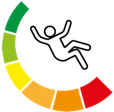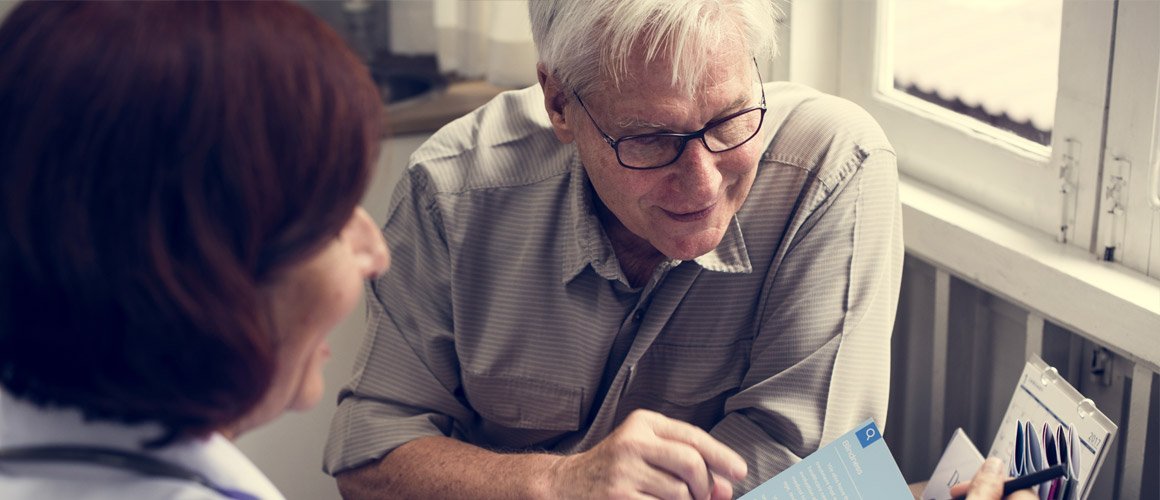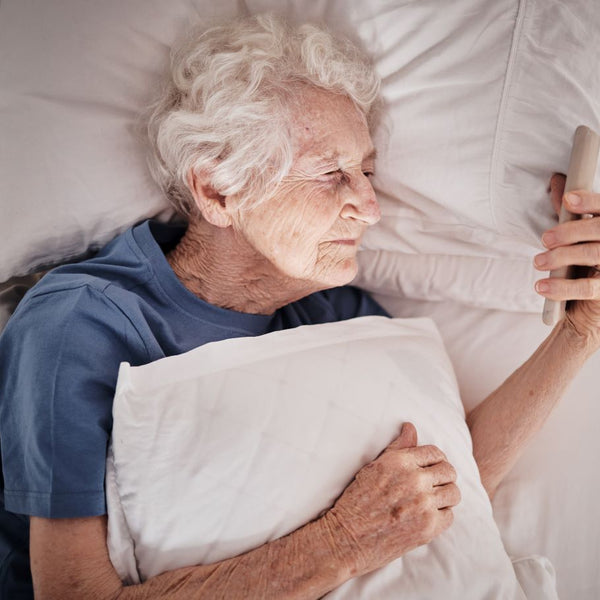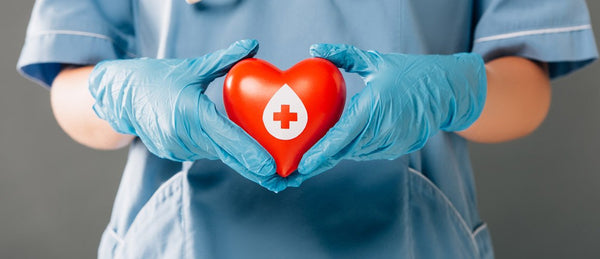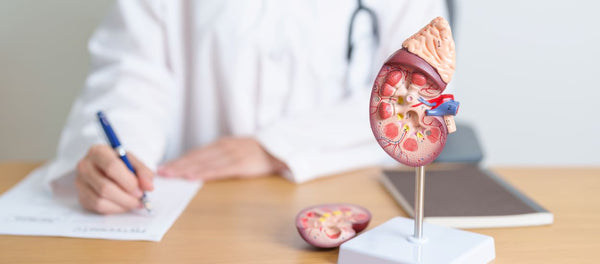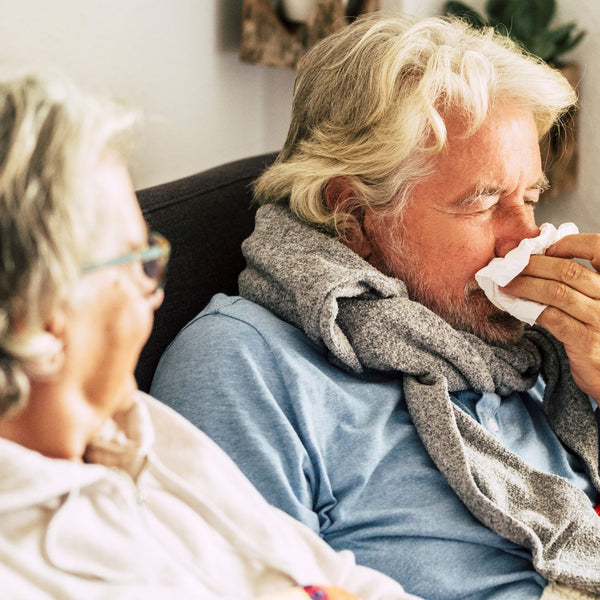Strokes can occur suddenly, without warning. While strokes can happen at any age, they are more common in the elderly and getting the right treatment quickly is essential. Learn to recognise the warning signs of a stroke so medical attention can be arranged as soon as possible.
Strokes are a medical emergency and the earlier that appropriate medical treatment is given, the less damage is likely to be caused. Therefore, it is important to be aware of the warning signs and act as quickly as possible if you suspect someone is having a stroke.
Lifestyle factors such as having high blood pressure, smoking, diabetes, high blood cholesterol levels, heavy drinking, poor diet and lack of exercise increase the risk of having a stroke.
The risk of a stroke increases with age, with the average age to experience a stroke being 74 for men and 80 for women.
In this guide, we discuss:
- What is a stroke?
- Different types of stroke in the elderly
- Signs and symptoms of a stroke - Act F.A.S.T
- Are mild stroke symptoms different?
- How to reduce the risk of stroke
- Where to get further help
What is a stroke?
A stroke is a serious medical condition when the blood supply to part of the brain is cut off. This causes brain cells to begin to degrade and die, which can result in a brain injury, disability and can sometimes be fatal.
Different types of stroke in the elderly
While strokes can happen at any age, they are more common in the elderly. There are actually three different types of stroke, which are:
- An ischaemic stroke - the most common type of stroke, caused by a blockage that cuts off blood supply to the brain.
- A transient ischaemic attack (TIA) - known as a mini-stroke. This is the same as an ischaemic stroke, however the symptoms only last for a short time as the blockage to the brain is temporary.
- A haemorrhagic stroke - caused by a bleeding in or around the brain.

Signs and symptoms of a stroke – Act F.A.S.T
The major symptoms of a stroke can easily be remembered with the acronym F.A.S.T
- Face - You may see weakness or drooping on one side of the face and the person may be unable to smile.
- Arms - They may be unable to raise and hold both arms up due to weakness in one arm.
- Speech – Slurred or garbled speech and difficulty understanding what you are saying to them.
- Time – It’s time to call 999 immediately if you see any of these signs or symptoms of a stroke.
Are mild stroke symptoms different?
A transient ischaemic attack (TIA) is often called a mini-stroke, or sometimes a mild stroke, and because the blood flow to the brain is interrupted temporarily, it can sometimes be more difficult to spot the signs and symptoms.
The symptoms are very similar to the other types of stroke, but as the effects may only be temporary, they can sometimes go unnoticed. However, having a TIA can indicate that experiencing an ischaemic stroke in the future is more likely, so watching out for any signs is very important. The person having a TIA may not notice that anything is happening to them either, especially if the effects don’t last long.
The symptoms of a TIA can last anywhere from a few minutes to several hours and may include:
- Feeling numbness or weakness, most commonly on one side of the body
- Dizziness, or sudden balance issues, which might cause a fall
- Difficulty speaking or understanding what is being said to them
- Sudden problems with vision, such as loss of sight in one eye or seeing double
How to reduce the risk of stroke
The risk of having a stroke is higher if the individual has already had a stroke or a TIA (transient ischaemic attack or mini-stroke). However, there are still things that can be done to reduce the risk of another stroke or having one in the first place.
- Regular check-ups – Medical conditions such as high blood pressure, high cholesterol or diabetes can increase the risk of having a stroke. Regular check-ups can help to pick up on these conditions earlier and you can put preventative measures in place before things get worse.
- Take prescribed medication - There are several health conditions, such as those mentioned above, that can increase the risk of someone having a stroke. If your elderly loved one has a medical condition that could potentially be increasing their risk of stroke, make sure they take the medication prescribed to help control it. Their GP can advise about any concerns they may have with medication they are taking or if they are worried about side effects. It's important that they never stop taking any prescribed medication without talking to their GP first.
- Lifestyle changes - Your older loved one can help to reduce their risk of a stroke by making some healthy lifestyle choices. They might consider cutting down on the amount of alcohol consumed, stop smoking, remaining active and eating a balanced diet, as these can all have a positive impact on overall health, as well as reducing the risk of having a stroke.
- Consider a personal alarm – A personal alarm is a wearable SOS button that can be pressed to get help in the event of an emergency. Whilst a personal alarm will not prevent a stroke, it can enable your elderly loved one to get help quickly and easily in the event of one occurring. The faster someone gets help when having a stroke, the lower the likelihood of serious complications occurring. Our personal fall alarms include fall detection technology, so an alert will be raised if a fall is detected, even if the button isn’t pressed.
We offer a wide range of personal alarms to suit every different type of lifestyle and circumstances. All of our alarms are connected 24/7 to our award-winning Emergency Resolution team.
Taking Care's award winning service
Find out more about Taking Care's award winning personal alarm service for the elderly.
Where to get further help
- NHS: a guide for people about strokes, including information about diagnosis, treatment, and prevention of strokes
- Stroke Association: Help and support for stroke survivors and their family members.

